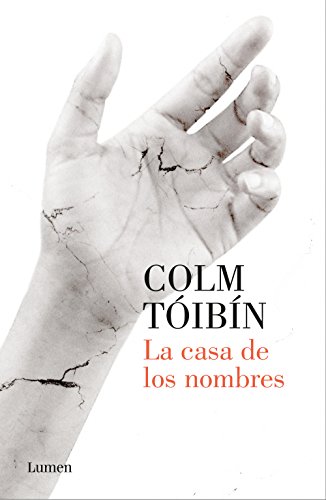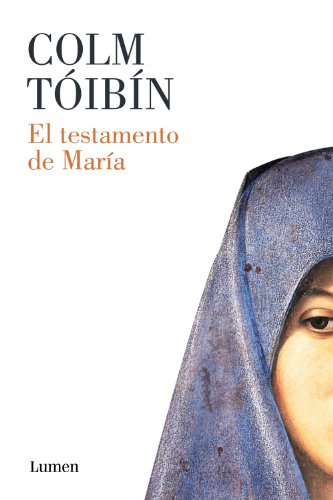Like other great authors (such as himself Frank McCourt, also Irish with which Colm Tóibín shares landscapes from memory made into literature) Tóibín makes a mirror game out of his narrative on many occasions between his world and the fiction posed.
Knowing the author, the intentionality of his work is better deciphered, the focus on personal aspects of his protagonists or on scenarios of his own life.
But the grace is in making that, of the personal, a universal space. AND Tóibín manages to extrapolate everything towards the most entirely human. Because in the exceptional, in the strange, in the soul wide open is where we end up identifying ourselves more than with supposed normalities or mediocrities.
In the bibliography of Colm Tóibín We find varied themes and jumps between fiction and non-fiction. In his more than ten novels we enjoy always innovative approaches among recurring scenarios, in some cases metaliterary in search of the transcript of every writer immersed in oceans of words..., always one of those authors who transcends literature to another level.
Top 3 recommended books by Colm Tóibín
The house of names
The Oresteia has that immortal point of work. Its immaculate conservation from ancient Greece until today, make it a link with the origin of our civilization, a channel of communication with that world in which it all began.
And as the Latin quote says: "Nihil novum sub sole", the interpretation of this book The House of Names, by Colm Tóibín, reminds us of precisely that, that there is nothing new under the sun. The theater through which the characters of Aeschylus's Oriestíada passed remains the same today. Because, quoting Terence on this occasion: Homo sum; humani nihil a me fucking alienum. In other words, nothing human is not alien.
From the first human to the one who says the last goodbye, we will have been the same, the same emotions, the same pains and passions, the same ambition, the same hatred and an identical love as the only will capable of linking everything together.
In any case, in practical terms, it is always risky to visit a classic and remove some of its patina so that it fits well in the current time. Only the profuse knowledge of the intention behind a classic work of this depth enables this magical translation of the author's feelings and intentions.
But there is no doubt that Colm Toíbín succeeds. Hit the key. He succeeds in choosing the most profound character in the play: Clytemnestra, the woman and mother full of rancor and in need of finalist justice. Reaching out to penetrate the psyche of this millennial female character gives this interpretation the label of a masterpiece.
As a result, we find a plot with which to cultivate while we relive the History of our oldest ancestors, that history that was wonderfully engraved in the legends and myths that the Oriestíada brought to our days.
Brooklyn
The Irish found their promised land in New York and made this city a colony with its imported idiosyncrasy and maintained to this day in constant miscegenation.
The issue of the Irish becoming Americans has something romantic since it began in the 19th century. And that awakens captivating images that fly over the sordid reality of a crowded city already in those years and with a very feared suburban life.
This novel is set much later, in the middle of the 20th century, but maintains that taste between the romantic, the melancholic and an aura of the unexpected that moves the life of Eilis Lacey, determined to make a new life for herself in Brooklyn from her deep native Ireland.
With the temperance, virtuosity and psychological insight of the contemporary master that he is, Colm Tóibín, one of the best Irish writers of our days, has constructed a shocking story about destiny whose diaphanous surface hides a depth where an inexhaustible complexity abysses.
Little by little, Eilis makes her way in Brooklyn in the 1950s and, despite nostalgia and the rigors of exile, she even finds a first love and the promise of a new life. Unexpectedly, however, tragic news from Ireland forces her to return and face everything she has fled from.
The testament of Mary
When JJ Benitez He finally presented his work to us in the series «Trojan Horse», we discovered that possible parallel world around the existence of Jesus Christ.
Fictions aside, the mere fact of setting yourself in those days of such a transcendental character was a great incentive that, thanks to documentation and setting, was a success even beyond the plot itself. On this occasion it is Colm Tóibín who delves into María , the mother of God, in her days after losing her son in such an unfortunate way. Nothing to do with great fictions, quite the opposite. We approach the mother in search of answers to find some peace.
The pain of the loss of Mary becomes the paradigm of our existence in the Catholic imagination, an example of resilience. From there Tóibín traces that essential tear in our fate as a species with awareness of our essential limitation: time.
In this overwhelming story Colm Tóibín gives voice to Mary, a torn woman who, after the violent death of Jesus, remembers the strange and turbulent events that have befallen her. Here the speaker is neither a virgin nor a goddess, but a Jewish mother, a citizen of one end of the Roman Empire where Hellenic rites are still encouraged, convinced that her son has allowed himself to be corrupted by nefarious political influences.
Alone and exiled, nostalgic for her husband and for a time of calm and security that was suddenly destroyed by Jesus' involvement in riots, apparent miraculous healings and plots that ended with the crucifixion of the man she had carried in her womb, Mary remembers and talks.
With extraordinary virtuosity and admirable dramatic ability, Colm Tóibín composes throughout these pages a true Stabat mater contemporary, full of light and pain, a lament that comes from tradition and continues to this day.



